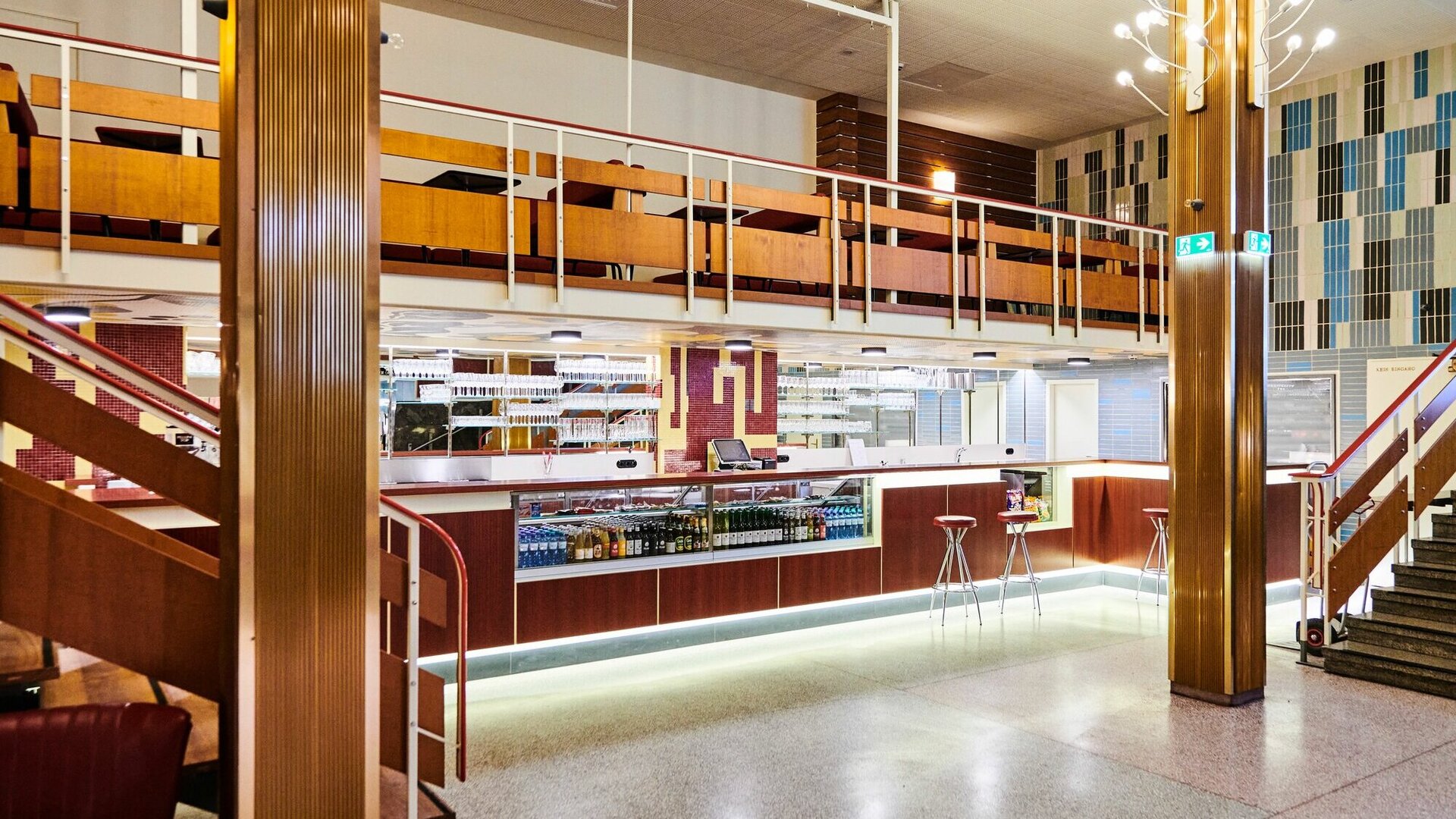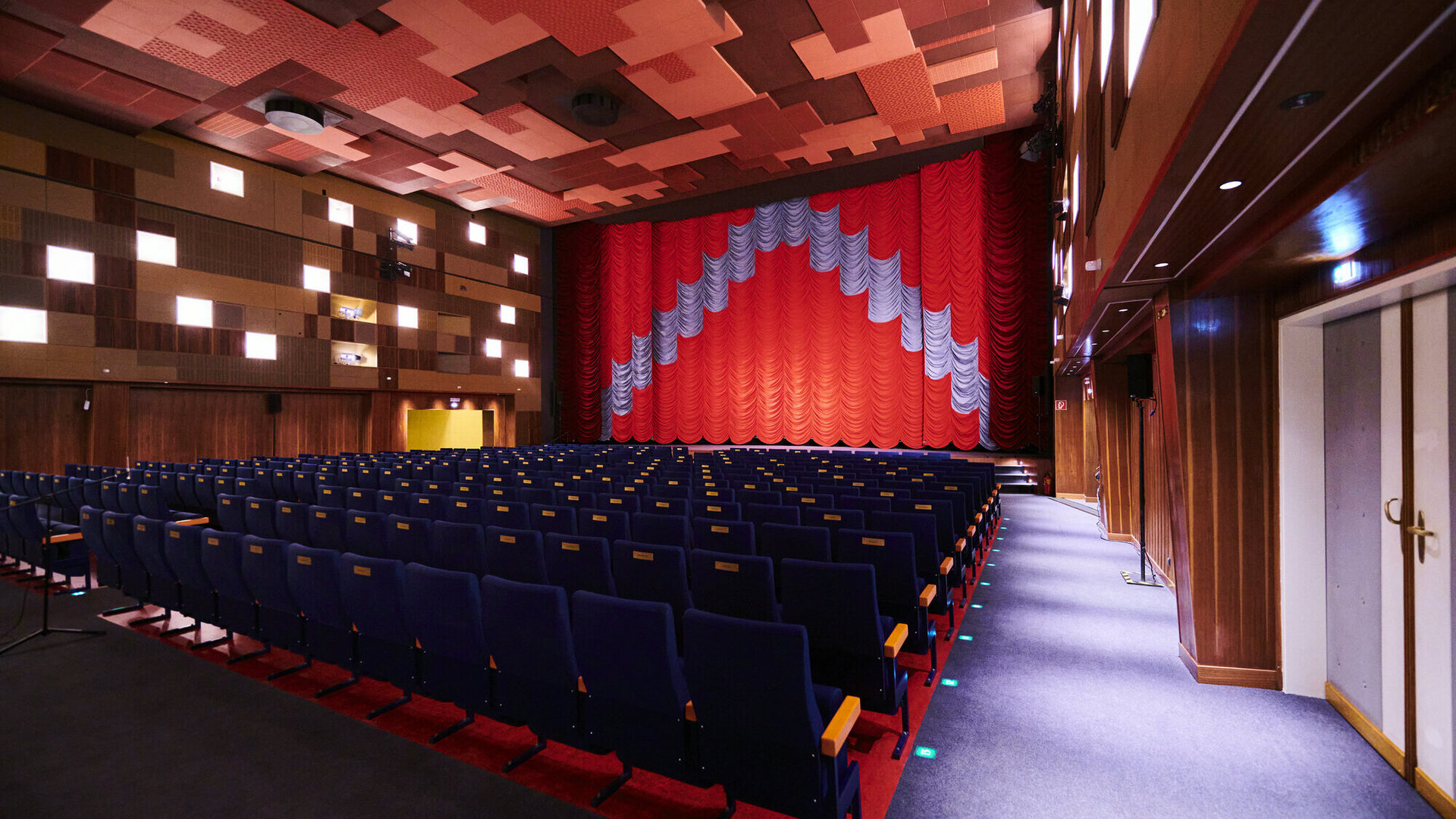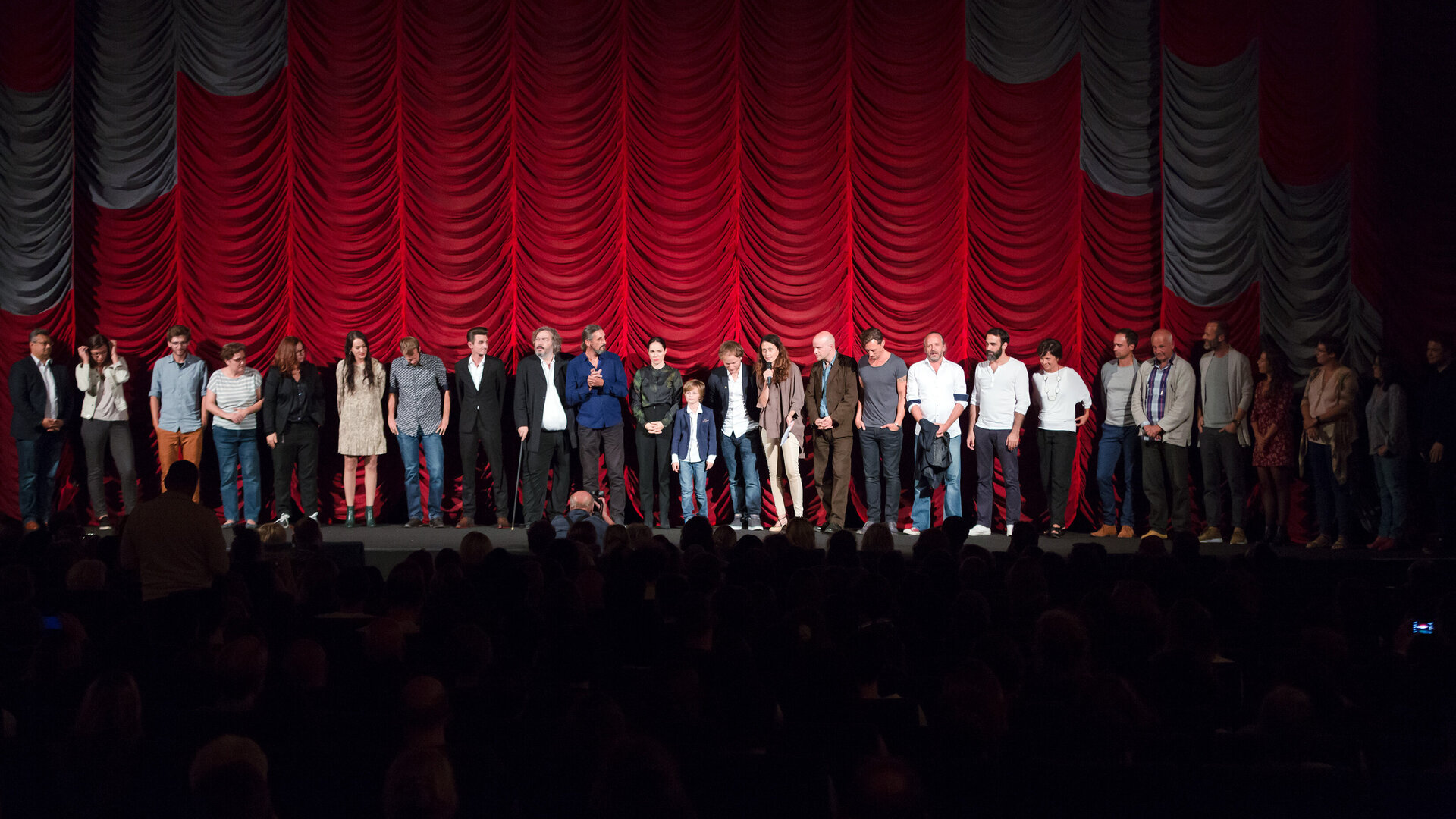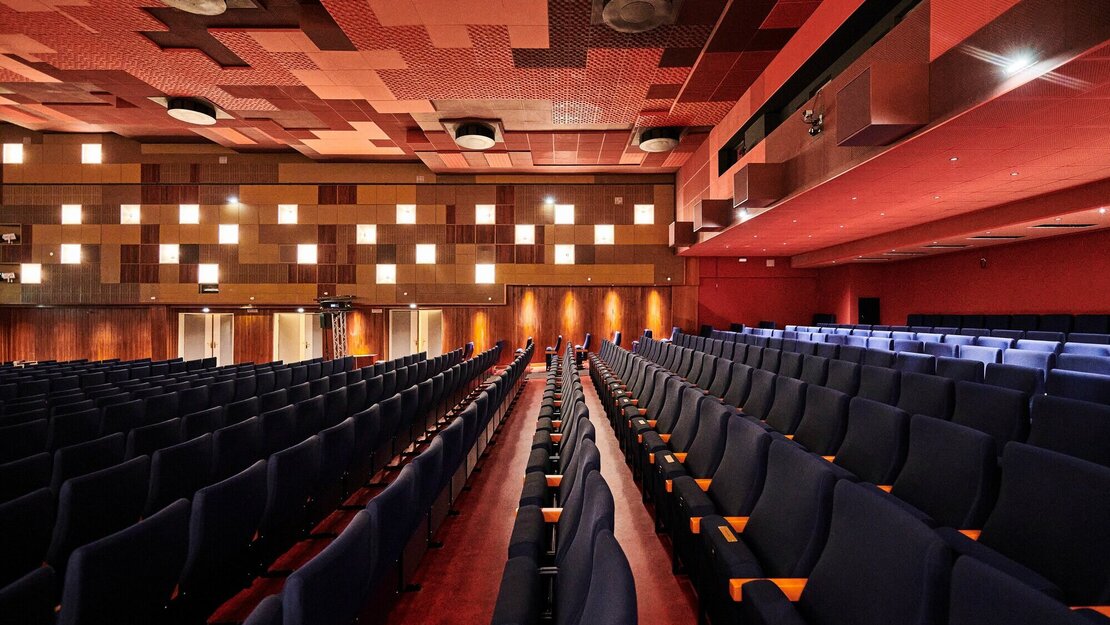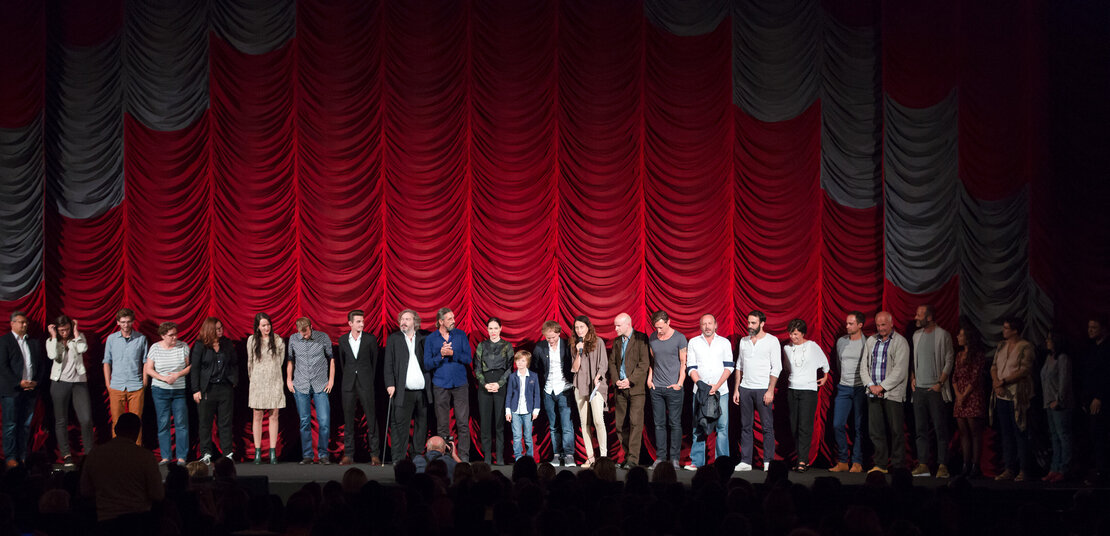My Gartenbaukino
I am as old as the renovated cinema - the reopening in December 1960 took place just a few weeks before my birth in February 1961, the cinema has accompanied me throughout my life, so to speak. Here, as a boy, I saw the movie 'Around the World in 80 Days' - with the then obligatory intermission and the fashion show beforehand, which took place before the screenings until the 80s. Here I saw 'Apocalypse Now' by Francis Ford Coppola - after the film I sat in the city park as if enchanted, let the film linger and felt no longer leave. However, I must have gone home somehow at that time. Similarly breathtaking is the beginning of Steven Spielberg's 'Saving Private Ryan' more than 20 years later. For the first 20 minutes, during the landing on the beach, I stopped breathing. When Tom Hanks resolves the emotions in his group of soldiers by betraying his profession, I was convinced that the academy will have no choice but to give him the Oscar for it. At the end, when said Private Ryan (Matt Damon) asks his children at the soldier's grave if he was a good man, if he was worth saving, I was sure, no, too much pathos, no Oscar. What a mistake, Spielberg got the Oscar for best director at the time, his DoP Janusz Kaminski one for best cinematography and three more Oscars were for best editing, sound and sound effects. Lead actor Tom Hanks, for example, went away empty-handed, as did composer-giant John Williams. By the way, the best film at that time was "Shakespeare in Love", among the producers of the film was a certain Harvey Weinstein - but the big hit of the Oscars 1999 was Roberto Benigni, who was awarded not only best foreign language film but also best leading actor for 'La Vita e bella'.
The Oscar nights in the Gartenbaukino became a fixed point, first the screening of the nominated films and then the Oscar ceremony, had something of the legendary cinema nights in the old Stadtkino on Schwarzenbergplatz. This year, the Oscar Night will be held for the 15th time - starting at noon, Steven Spielberg's version of West Side Story will be shown, then 'Licorice Pizza', Paul Thomas Anderson's story about the confusions of growing up before a trip back in time to the 70s. In front of the camera Cooper Hoffman, son of the acting genius Philip Seymour Hoffman, who died much too soon. Then Spider-Man Andrew Garfield in a rousing musical film : 'Tick, Tick ... Boom' about Broadway composer Jonathan Larson, whose musical "Rent" revolutionized Broadway, but who did not live to see its success - he died shortly before at age 35. By the way, the director is Lin-Manuel Mirinda, a director and composer who also revolutionized Broadway with his musical 'Hamilton'.
"Alexander Hamilton is one of the forgotten founding fathers of the U.S., who is considered the founder of the American financial system."
One more addition to this - 'Hamilton' is known by every child in the USA, my daughter, who wanted to do a semester abroad in the USA in 2019, which then had to be canceled due to the outbreak of the pandemic, told me that everyone in the USA was completely crazy about it. 9 Tony Awards also made it one of the most successful Broadway plays, in Europe it has not yet landed because of the pandemic (with the exception of the UK, where the play started in 2018), in the fall of 2022, the German version (before which I'm a little creeped out because of the language) should premiere in Hamburg, who wants to see the Broadway version, with the so-called original cast -which means Mirinda herself in the role as Alexander Hamilton, will find at Disney+ and since a cooperation was agreed between the two, also on apple-tv. In the U.S. The musical has triggered an almost unprecedented wave of interest in American history. Alexander Hamilton is one of the forgotten founding fathers of the U.S., who is considered the founder of the American financial system. He succeeded, despite fierce opposition, in getting all the states to join the "united" states by taking over their debts from the War of Independence as the "United States''. He simply fired up the printing press in the basement of the Federal Reserve Bank, then in statu nascendi, strictly speaking neither new nor surprising. Since he was killed in a duel, unlike other so-called Founding Fathers (the name given to the 39 delegates to the Philadelphia Convention who signed the first U.S. Constitution in Philadelphia on Sept. 17, 1787), he was forgotten. A worth seeing video of Barack Obama talking about the musical.
Back to Oscar night, after 'Tick, Tick ... Boom' ,''Flee' will be shown, the Danish entry in the category of flicks nominated for Best Foreign Language Film (where Austria was once again miles away from even being noted). Director Jonas Poher Rasmussen tells the story of an escape without being allowed to mention the protagonist and solves this via a fictional character in an animated film. Then at 11 pm Joachim Trier's "The Worst Person in the World", starts in the category of best international film. After that, the broadcast of the Oscars begins, who had tickets for the last performance before, may remain seated there, tickets for the long night of the Oscars gibst already online. The Academy has promised a lively show with many innovations for this year, Oscar new polished, so to speak. Who thinks the Oscars rather for the boring night of the long Oscars, is in any case well served with the selection of nominated films and can spend from Sunday noon, so to speak, half the Sunday in the horticultural cinema, including the breaks in the newly renovated buffet area. At the beginning of the 1980s, when the city-owned KIBA was still at the helm, I was part of a small troupe of artists, journalists and then students, some of whom are now pursuing very respectable professions, who hung out in the cafes of the 3rd district and not infrequently ended up at the legendary Ungarstuben, on the corner of Ungargasse and Münzgasse. The pub was open around the clock and during the official closing time, people entered it through the building entrance Münzgasse and the kitchen - even the gentlemen from the police did this when they were hungry in the morning.
"In the early 2000s, I became aware of the fact that almost 400 light bulbs were burning in the cinema hall, because we had to replace so many of them with "blue" light bulbs in order to bathe the entire hall in the blue of our client's corporate colors."
There, as in all the legendary night cafes of the Viennese city, everyone, really everyone, sat together in a relaxed atmosphere: criminal investigators, the gentlemen from the street and club business and their various employees, students, journalists, artists, night owls - in short, everyone who didn't want to go to bed. Right at the entrance there were two "date machines", gambling machines, at that time not yet forbidden and a fixed component of this kind of establishments. A particularly tragic fate had a lady, older for us at that time, who threw 10s for 10s (10 shillings were a coin, paper began only with the 20s) in there for hours. Until no more 10s were there, also none more came out as "profit", until it was stop. The regulars or the waiter or the no less legendary owner then usually donated her a coffee or a splash, after all she was broke. The nightly excursions could be combined quite well with her job, because she didn't have to start until the afternoon and didn't finish work until late in the evening, she sat at the box office of the Gartenbau cinema. No further details, but this is supposedly how we once often got movie tickets from the wondrous realm of the community-owned KIBA. In the early 2000s, I became aware of the fact that almost 400 light bulbs were burning in the cinema hall, because we had to replace so many of them with "blue" light bulbs in order to bathe the entire hall in the blue of our client's corporate colors. At that time, we were in charge of the screening of "AI" by Steven Spielberg, during the intermission of which a small symposium on the subject was held. The client wanted "blue", so we changed, among other things, the light bulbs. One sentence that was uttered at the symposium has remained in my memory: the then rector of the Technical University of Vienna said that if there was such a thing as artificial intelligence, then natural stupidity must also be allowed.
Finally, the director Adrian Goiginger, who is much respected today, took me to the Gartenbaukino twice: we shot a teaser or mood film there for the submission of his screenplay "12 Karat" for production, the DB was never filmed because we couldn't manage the financing - but the teaser paid off for Goiginger, it is said to have been decisive for his acceptance at the Filmakademie des Landes Baden- Württemberg in Ludwigsburg (we shot for three days in the toilet of the Gartenbaukino and also tested the new LED spotlights from ARRI at the time) -and a second time, yes, the premiere of 'The Best of All Worlds' took place in the Gartenbaukino and I was the only one who insisted on it at that time, because I was the only one who was convinced that the premiere in the largest cinema hall in Austria would not be given away but, at least for the most part, sold out. And so it was, I was back in my "Gartenbaukino", this time with a film produced by me on the screen. Post scriptum. I still feel like sitting in the city park and letting it work on me.
The pictures from the Gartenbaukino are from the official website ©Chris Mavric
